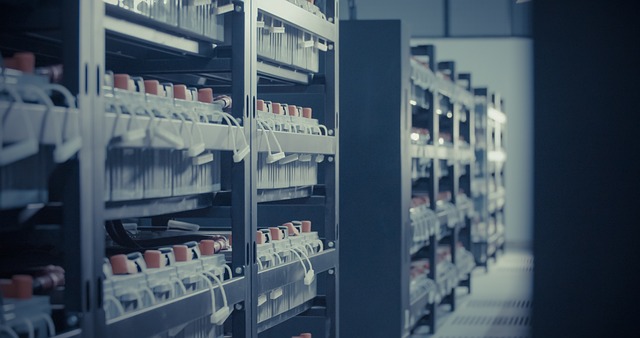Lithium-Ion Battery Consulting, Sales & Installation
We consult, sell, install and maintain lithium-ion batteries in Nigeria & Africa
Lithium-Ion Batteries Sales & Installation In Nigeria & Africa
Global Locations
Phone: +234 808 0888 162
Email: [email protected]
Address: 17/21, Akinsanya Street, Ojodu Berger, Lagos.
Hours: Mon-Fri: 9am – 4pm
Email: [email protected]
Address: 17/21, Akinsanya Street, Ojodu Berger, Lagos.
Hours: Mon-Fri: 9am – 4pm
Download Brochure
Our Service To You
With Ground Zero Africa Industries' renewable energy solutions, you can successfully switch to clean and sustainable energy with our comprehensive lithium-ion battery energy solutions.
Our experienced team specializes in the sales, installation, and maintenance of top-quality lithium-ion batteries, so you can enjoy lower energy costs, reduced carbon footprints, and experience reliable power supply.
Embrace the future of energy with our trusted lithium-ion battery products and services which can be deployed anywhere in Nigeria or Africa.
Our experienced team specializes in the sales, installation, and maintenance of top-quality lithium-ion batteries, so you can enjoy lower energy costs, reduced carbon footprints, and experience reliable power supply.
Embrace the future of energy with our trusted lithium-ion battery products and services which can be deployed anywhere in Nigeria or Africa.

What is A Lithium-Ion Battery?
A lithium-ion battery is a type of rechargeable battery that uses lithium ions as the primary component for energy storage. It is widely used in various electronic devices, electric vehicles (EVs), and renewable energy systems.
Lithium-ion batteries are highly popular due to their high energy density, longer lifespan, and lighter weight compared to other rechargeable battery technologies. They are known for their ability to store a significant amount of energy in a compact and lightweight package, making them ideal for portable devices such as smartphones, laptops, and tablets.
The basic structure of a lithium-ion battery consists of three main components: a positive electrode (cathode), a negative electrode (anode), and an electrolyte. During charging, lithium ions move from the positive electrode to the negative electrode through the electrolyte. During discharging, the lithium ions move back to the positive electrode, releasing stored energy in the process.
One of the key advantages of lithium-ion batteries is their ability to be recharged multiple times, making them a more sustainable and cost-effective energy storage solution. They also have a relatively low self-discharge rate, meaning they can hold their charge for extended periods without significant energy loss.
Lithium-ion batteries have revolutionized the automotive industry by powering electric vehicles, offering longer driving ranges and faster charging times compared to traditional lead-acid batteries. They also play a crucial role in storing energy generated from renewable sources like solar and wind, enabling greater grid flexibility and reducing reliance on fossil fuels.
However, it's important to note that lithium-ion batteries require careful handling and management due to safety considerations. They are sensitive to high temperatures and overcharging, which can lead to thermal runaway and potential safety hazards. Therefore, proper battery management systems and safety protocols are essential in their design and usage.
Overall, lithium-ion batteries have transformed the way we power our portable devices, vehicles, and renewable energy systems, offering a reliable and efficient solution for energy storage and utilization
A lithium-ion battery is a type of rechargeable battery that uses lithium ions as the primary component for energy storage. It is widely used in various electronic devices, electric vehicles (EVs), and renewable energy systems.
Lithium-ion batteries are highly popular due to their high energy density, longer lifespan, and lighter weight compared to other rechargeable battery technologies. They are known for their ability to store a significant amount of energy in a compact and lightweight package, making them ideal for portable devices such as smartphones, laptops, and tablets.
The basic structure of a lithium-ion battery consists of three main components: a positive electrode (cathode), a negative electrode (anode), and an electrolyte. During charging, lithium ions move from the positive electrode to the negative electrode through the electrolyte. During discharging, the lithium ions move back to the positive electrode, releasing stored energy in the process.
One of the key advantages of lithium-ion batteries is their ability to be recharged multiple times, making them a more sustainable and cost-effective energy storage solution. They also have a relatively low self-discharge rate, meaning they can hold their charge for extended periods without significant energy loss.
Lithium-ion batteries have revolutionized the automotive industry by powering electric vehicles, offering longer driving ranges and faster charging times compared to traditional lead-acid batteries. They also play a crucial role in storing energy generated from renewable sources like solar and wind, enabling greater grid flexibility and reducing reliance on fossil fuels.
However, it's important to note that lithium-ion batteries require careful handling and management due to safety considerations. They are sensitive to high temperatures and overcharging, which can lead to thermal runaway and potential safety hazards. Therefore, proper battery management systems and safety protocols are essential in their design and usage.
Overall, lithium-ion batteries have transformed the way we power our portable devices, vehicles, and renewable energy systems, offering a reliable and efficient solution for energy storage and utilization
Key Questions & Answers
Some of the key questions and answers you may need are below:
Our trade process spreads across CIF and FOB depending on the buyer's preference.
Here's what they entail:
1). Ex Works:
Ex Works means that the seller shall deliver the goods as soon as they are made available to the buyer at the seller's premises or other designated premises (e.g. factory, plant, warehouse, etc.). The seller shall not be obligated to load the goods onto a collecting vehicle or to clear the products for export.
2). Cost Insurance and Freight (CIF): Here, the seller will handle everything from loading the vessel, paying for insurance, and sending the product to wherever the buyer wants it delivered.
3). Freight On Board (FOB): Here, the seller pays for the transportation of the goods to the port of shipment, plus loading costs, while the buyer pays the cost of marine freight transport, insurance, unloading, and transportation from the originating port to the final destination.
Here's what they entail:
1). Ex Works:
Ex Works means that the seller shall deliver the goods as soon as they are made available to the buyer at the seller's premises or other designated premises (e.g. factory, plant, warehouse, etc.). The seller shall not be obligated to load the goods onto a collecting vehicle or to clear the products for export.
2). Cost Insurance and Freight (CIF): Here, the seller will handle everything from loading the vessel, paying for insurance, and sending the product to wherever the buyer wants it delivered.
3). Freight On Board (FOB): Here, the seller pays for the transportation of the goods to the port of shipment, plus loading costs, while the buyer pays the cost of marine freight transport, insurance, unloading, and transportation from the originating port to the final destination.

We Are Ready To Take Your Order
We ensure that the most critical industrial raw materials ranging from ithium ores like spodumene, lepidolite and amblygonite to the supply of tantalite, silica sand and much more commodities required for manufacturing in the renewable energy space, are delivered on time, every time. We also ensure that we deliver the most efficient and powerful renewable energy solutions to our clients for their vast array of projects
Quick Contact
If you have any questions or need help, please contact our team.
17/21, Akinsanya Street, Ojodu Berger, Lagos, Nigeria
Become A Partner
©2023 Ground Zero Africa Industries, All Rights Reserved.



